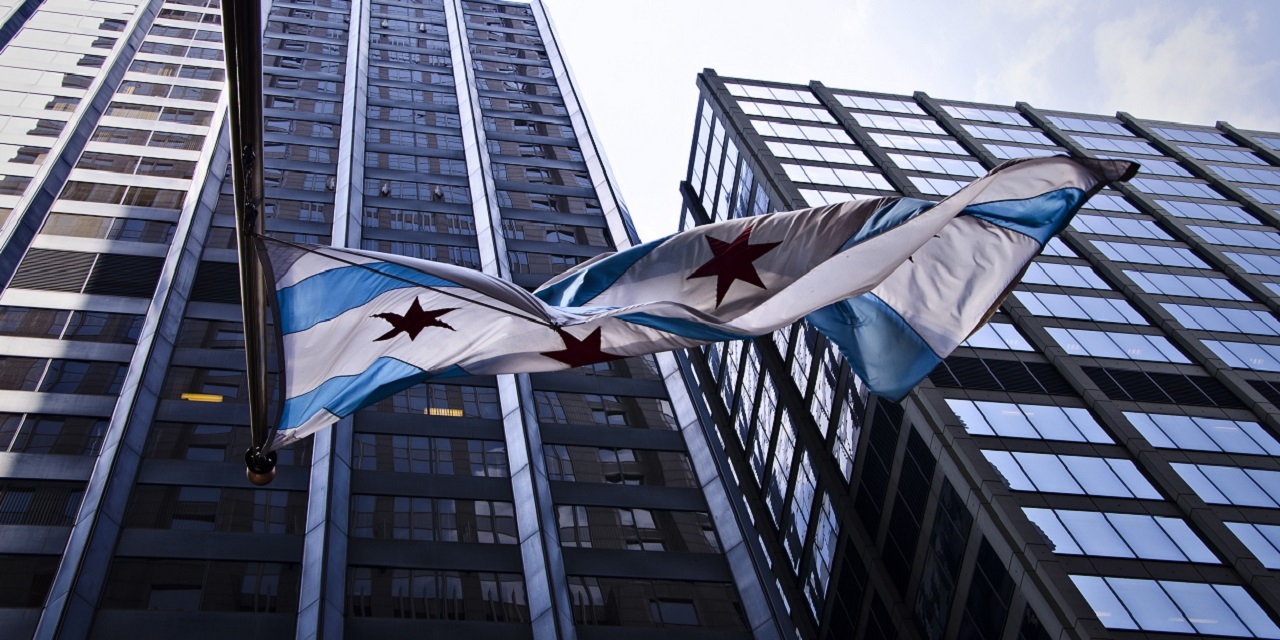CHICAGO — The Building Owners and Managers Association of Chicago has sued City Hall to try to stop the city from enforcing its Fair Workweek Ordinance, which regulates employers’ scheduling processes, and asking the courts to strike the ordinance down as unconstitutional for targeting only specific kinds of employers.
The City Council adopted the ordinance in July. Supported by new Mayor Lori Lightfoot, the new rules require a large number of employers to publish their workers’ shift schedules at least 10 days in advance of the first work day in each new schedule. Should that schedule change after posting, employers must provide affected workers with an additional amount equal to one hour of pay at the regular pay rate, a concept called “predictability pay.” For shifts the employer cancels within 24 hours of scheduled start time, the workers are entitled to half their regular pay for any canceled hours.
BOMA filed its complaint Nov. 1 in federal court in Chicago, alleging the ordinance — set to largely take effect July 1, 2020 — exceeds the city’s home rule powers and violates National Labor Relations Act guidelines concerning union employees, as well as state and federal equal protection rights.
According to the complaint, the ordinance applies to seven industries: building services, health care, hotels, manufacturing, restaurants, retail and warehouse services. BOMA said the council imposed “new and dramatic requirements” on its members, mandating they “bargain with the unions in order to obtain the explicit waiver required to avoid application of the Ordinance. Thus, the effect of the Ordinance is to create a complex series of union-backed proposals, never before requested at the bargaining table, and enable the unions to extract economic or other benefits from BOMA/Chicago and its members that may not have otherwise been subject to collective bargaining negotiations.”
BOMA further noted it negotiated three different union contracts not set to expire until after the ordinance takes effect. When those deals expire, it said, members will have to either make concessions to get an explicit waiver, abide by the city’s “preempted and unconstitutional” requirements or face penalties and possible lawsuits. The law doesn’t take effect for health care businesses until 2022.
The NLRA pre-empts the city ordinance, according to BOMA, because it isn’t a minimum labor standard, nor is it “a law of general application” because it covers only select trades and industries. The ordinance “regulates conduct that Congress intended to be controlled by the free play of economic forces” and should be stricken as unconstitutional and unenforceable, BOMA argued.
BOMA’s due process claims arise from its argument the list of seven industries and stipulations on workforce size are arbitrary “and without rational basis,” undercutting its viability under the 14th Amendment and the Illinois state constitution.
“The Ordinance violates the Illinois Constitution’s home rule authority by regulating employment terms and conditions, matters traditionally and properly considered to be of state and federal rather than local government concern,” BOMA alleged.
Further, it creates a so-called private right of action, which places employers at heightened risk of lawsuits, in state court. The ordinance establishes “specific damages, including litigation costs, expert witness fees, and reasonable attorney’s fees, thereby imposing a burden on" the state's courts system.
Employees could sue employers for violating the ordinance after first filing a complaint with the city’s Department of Business Affairs and Consumer Protection.
In addition to asking the court to declare the ordinance invalid, BOMA also wants an injunction preventing the city from enforcing it and to be compensated for the cost of its lawsuit.
Representing BOMA in the matter are lawyers from Cozen O’Connor, of Chicago.
